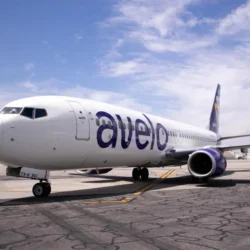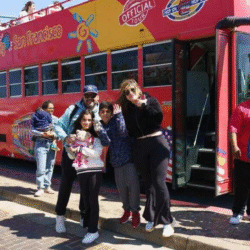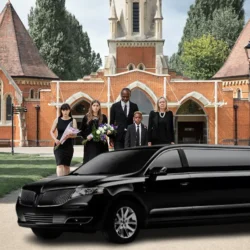For anyone navigating the Windy City’s streets, understanding Rush Hour in Chicago is not just a convenience; it’s a survival skill. The city’s vast network of expressways and arterial streets transforms during peak times into a slow-moving river of vehicles. This guide delves into the specific Chicago traffic times you need to know, identifies the most congested Chicago expressways, and provides actionable strategies to minimize your commute stress. Whether you’re a daily commuter or a visitor planning your itinerary, knowing the rhythm of the city’s traffic flow is the first step toward a smoother journey.
The reality of driving in Chicago during peak periods is defined by its convergence of major interstates, robust commercial traffic, and the city’s role as a central hub for the Midwest. By anticipating the patterns, you can reclaim valuable time and transform a frustrating crawl into a predictable part of your day.
When is Rush Hour in Chicago?
The core Chicago rush hour schedule is largely shaped by the traditional 9-to-5 workday, but with earlier starts and later ends than many expect.
- Morning Rush Hour: 6:30 AM to 9:30 AM
Traffic flow is overwhelmingly inbound toward the Loop and downtown core. The peak congestion typically occurs between 7:45 AM and 8:45 AM. - Evening Rush Hour: 3:30 PM to 6:30 PM
The exodus from the city begins, with the most intense traffic congestion on outbound expressways between 5:00 PM and 5:45 PM.
It’s crucial to note that Friday traffic in Chicago is a unique beast. The evening rush often starts as early as 2:30 PM as weekend travelers mix with regular commuters, creating prolonged and unpredictable delays.
Chicago’s Traffic Hotspots
Certain corridors bear the brunt of the daily gridlock in Chicago. Knowing these trouble spots can help you mentally prepare or seek alternatives.
- The Kennedy Expressway (I-90/94): The journey between the O’Hare area and the Loop is notoriously slow, especially near the Jane Byrne Interchange.
- The Dan Ryan Expressway (I-90/94): This southside artery experiences heavy congestion from the South Loop down to the southern suburbs.
- The Eisenhower Expressway (I-290): Connecting the western suburbs to the city, the “Eisenhower Crawl” is a well-known phenomenon during peak hours.
- The Stevenson Expressway (I-55): Another major route from the southwest, I-55 sees significant backups, particularly around the I-90/94 merge.
- Downtown Chicago Streets: The Loop, River North, and Streeterville surface streets become clogged with commuters, ride-shares, and delivery vehicles.
Pro Tips for Beating Chicago Rush Hour Traffic
Simply knowing the peak travel times in Chicago is half the battle. Here are proven strategies to outsmart the congestion:
- Travel During Off-Peak Hours: Adjust your schedule if possible. The best times to avoid traffic are typically mid-day (10:00 AM to 2:30 PM) or later in the evening (after 7:00 PM).
- Utilize Real-Time Traffic Apps: Leverage technology like Google Maps, Waze, or the IDOT Traffic app. These tools provide live updates on accidents, construction, and Chicago road conditions, suggesting faster alternate routes.
- Explore Public Transit Options: The CTA ‘L’ trains and Metra commuter rail are often the fastest and most reliable ways to get in and out of the downtown area during peak hours, bypassing expressway traffic entirely.
- Understand Chicago Construction Seasons: Be especially vigilant from spring through fall. Chicago construction projects can close lanes and create new bottlenecks without warning. Always check for planned roadwork before you leave.
- The Ultimate Stress-Reliever: Professional Driver Services: For the most seamless experience, consider a pre-booked car service. Companies like Express Limo Inc. provide expert Chicago chauffeurs who know every shortcut and real-time traffic pattern. This allows you to work, relax, or simply arrive at your destination without the stress of navigating Chicago bottlenecks yourself.
Tips to Avoid the Traffic
You can plan your route and leverage technology, but let’s be honest: navigating rush hour in Chicago is a high-stress, full-time job. Even with the best apps, you’re still the one white-knuckling the steering wheel, missing important calls, and arriving at your destination frustrated and drained. There’s a better way to travel.
This is where the true value of a professional service like Express Limo Inc. becomes undeniable. When you book a ride with us, you’re not just ordering a car—you’re hiring an expert logistics team dedicated to a single goal: getting you to your destination safely, on time, and in complete comfort, regardless of the traffic.
Expert Navigation Beyond the App: Our professional chauffeurs have years of experience navigating Chicago’s streets. They don’t just follow a GPS; they interpret it with local wisdom. They know which “shortcut” will be clogged in 10 minutes and which lesser-known arterial road is flowing smoothly. This innate knowledge, combined with real-time data, is an advantage no app can replicate.
Your Time, Redeemed: Instead of fighting traffic, you can be productive. Use your commute to prepare for a meeting, make important phone calls, or simply relax and decompress. We provide a mobile office or a quiet sanctuary, allowing you to arrive refreshed and ready.
Stress-Free Guarantee: With Express Limo, the headache of traffic is our problem, not yours. We handle the route planning, the congestion, and the parking, guaranteeing you a punctual arrival without the stress. You gain predictability and peace of mind.
Frequently Asked Questions
When is morning rush hour in Chicago?
Morning rush hour is from 6:00 AM to 9:00 AM on weekdays, with peak congestion around 8:00 AM.
When is evening rush hour?
Evening rush hour is from 3:00 PM to 7:00 PM, worst time between 5:00-5:45 PM as commuters leave downtown.
Which expressways are the worst during rush hour?
The Kennedy (I-90/94), Dan Ryan (I-90/94), and Eisenhower (I-290) experience the heaviest delays.
Do weekends have rush hour?
Typically, no, except around major events, airports, and Sunday evenings on holiday weekends.
Conclusion:
Rush Hour in Chicago is a powerful but predictable force. By understanding the standard Chicago commute times, recognizing the busiest corridors, and implementing smart strategies like off-peak travel or using a professional service, you can significantly reduce your time spent in traffic. Don’t let the fear of gridlock dictate your day plan ahead, stay informed, and transform your Chicago commute from a daily struggle into a managed part of your routine.




